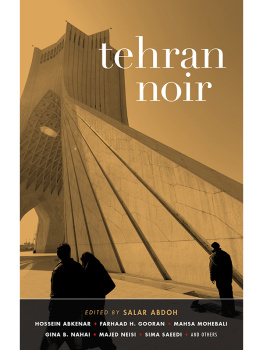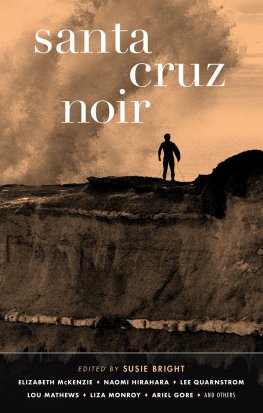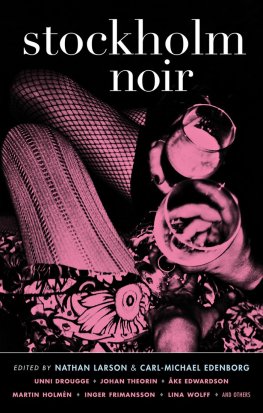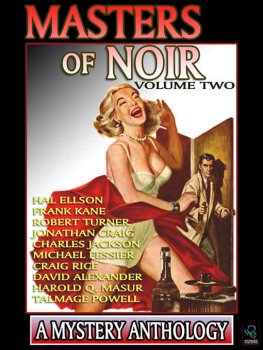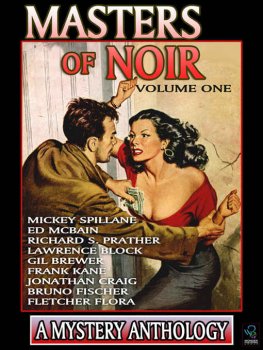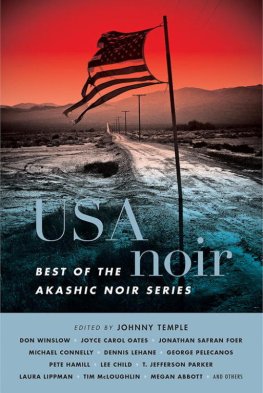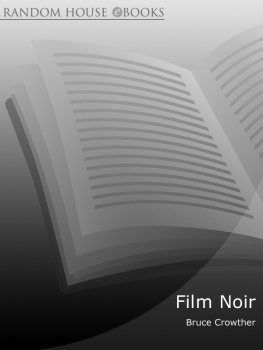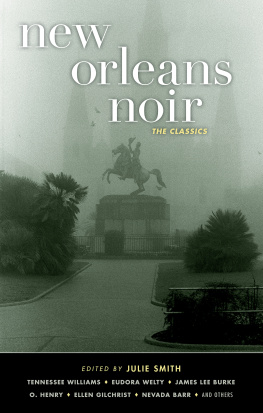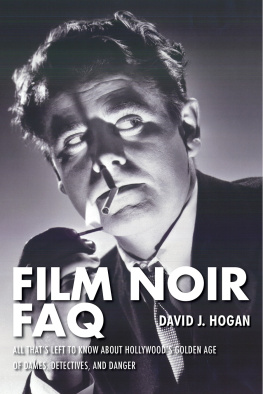Salar Abdoh - Tehran Noir
Here you can read online Salar Abdoh - Tehran Noir full text of the book (entire story) in english for free. Download pdf and epub, get meaning, cover and reviews about this ebook. City: New York, year: 2014, publisher: Akashic Books, genre: Art / Science fiction. Description of the work, (preface) as well as reviews are available. Best literature library LitArk.com created for fans of good reading and offers a wide selection of genres:
Romance novel
Science fiction
Adventure
Detective
Science
History
Home and family
Prose
Art
Politics
Computer
Non-fiction
Religion
Business
Children
Humor
Choose a favorite category and find really read worthwhile books. Enjoy immersion in the world of imagination, feel the emotions of the characters or learn something new for yourself, make an fascinating discovery.
- Book:Tehran Noir
- Author:
- Publisher:Akashic Books
- Genre:
- Year:2014
- City:New York
- Rating:4 / 5
- Favourites:Add to favourites
- Your mark:
- 80
- 1
- 2
- 3
- 4
- 5
Tehran Noir: summary, description and annotation
We offer to read an annotation, description, summary or preface (depends on what the author of the book "Tehran Noir" wrote himself). If you haven't found the necessary information about the book — write in the comments, we will try to find it.
Tehran Noir — read online for free the complete book (whole text) full work
Below is the text of the book, divided by pages. System saving the place of the last page read, allows you to conveniently read the book "Tehran Noir" online for free, without having to search again every time where you left off. Put a bookmark, and you can go to the page where you finished reading at any time.
Font size:
Interval:
Bookmark:


To the memory of Ali Abdoh, old Tehrans boss of bosses, and to his grandson, Ashil.
In addition to the remarkable efforts and patience of the writers themselves, there are several friends who should be especially acknowledged in this anthology: Hooshyar Ansaarifar, Mitra Elyati, Maryam Haidari, Somayeh Nasiriha, and Hassan Shahsavari. A warm thanks to each and every one of you for your invaluable suggestions and encouragement. This book could not have come together as it did without you.
INTRODUCTION
THE SEISMIC CITY
Back in the day, so my mother tells me, on the rare occasions when my father took her along to one of the cabarets of old Tehran, the tough guysthe lutisthe bosses, the knife brawlers, and the traditional wrestlers, would lay out their suits and jackets on the floor of the place for my mother to walk on. It was a gesture of supreme respect for one of their own. And it says a lot about a Tehran that simply doesnt exist anymorea Tehran of chivalry and loyalty, a place where allegiances meant something, where friendships harked back to a classical world of warriors from the great Persian epic, the Shahnameh (The Book of Kings), and to the medieval Islamic notion of the ayyar brotherhood in Iran and Mesopotamia where the bandit and the common folks champion were one and the same, and where every man followed a code of honor set in stone.
Or else, all of this may simply be wishful nostalgia for something that didnt exist even back then. Back then means a time before the Islamic Revolution of 1979. That watershed event that sits in the mind of every Iranian as a chasm, a sort of year one after which everything strange became law. The brutal eight years of war with Iraqthe longest conventional war of the twentieth centurythe persistent pressures from America in its own everlasting twilight war with Iran, the official corruption of the new ruling class, and the snowballing inflation turned just about everyone into a night worker. Living an honest life was no longer an option. Prostitution, theft, an explosion in the drug trade and addiction, the selling off of raw materials and historic national treasuresplus endemic, in-your-face briberybecame a way of life. Meanwhile Tehran grew and grew, until it was one of the megacities of the world, now pushing at fifteen million stray soulsa leviathan that can barely stand itself, a purgatory of unmoving traffic, relentless pollution, and noise and anger and inequity, surrounded by some of the most beautiful mountain scenery in the world.
Tehran, then, is a juxtaposition of ugliness and beauty that breaks the heart. A place where not one but two inept dynasties came to miserable ends, and where, arguably, the third most important revolution in history (after the French and the Russian) was started. It is also the city where Churchill, Stalin, and Roosevelt met to divvy up the world while the flames of WWII were still burning. And it was where one of the CIAs first manufactured coups (with the prodding and support of the Britishwho else?) against a democratically elected government was put into motion, thus ushering in years of a dictatorship which in turn was swept aside by the first real fury of fundamentalist Islam, a harbinger of the world we now live in and call post9/11.
In other words, there is something of both the absolutely spectacular and positively disgraceful about Tehran. But most writers around the world are inclined to think that their own sprawling metropolis is the capital of every imaginable vice and crime, of impossible love and tenderness and cruelty and malice in measures that seldom exist anywhere else. For me, Tehrans case is no differentexcept that there really is a difference here. The city may be a hothouse of decadence, a den of inequity, all that. But it still exists under the watchful eye of a very unique entity, the Islamic Republic. The city enforces its own morality police, and there are regular public hangings of drug dealers and thieves. Because of this, there is a raging sense of a split personality about the placethe imposed propriety of the mosque rubbing against the hidden (and more often not so hidden) rhythms of the real city. At the start of each day, and particularly in late evenings, Tehran remains a schizophrenic beast always at odds with itself, always trying to figure what will be the next design for it that wont fit, or fit horribly.
None of this is of course helped by the fact that Iran happens to be one of the biggest drug conduits on the planet. The vast Afghan opium crop, transformed into heroin, needs its transit routes for the European markets, while Iran itself remains a major supplier of methamphetamines. The country and its slatternly capital sit at the crossroads of the worldto the north is the specter of Russia, ever daunting, to the west there is Turkey and the gates of Europe, to the south is the Persian Gulf, the Arab lands, and the immensity that is Africa, and to the southeast and east is India and the rest of the great Asian continent. Each of these have had their say in Iran at some point. Each has left its indelible mark. And you only have to traverse the country to experience the dozen languages and as many shades of color and appearanceall of them inevitably converging on Tehran, impregnating it and aborting it, lending it life and destroying it, and, sometimes, praying for its redemption.
You would think that such fertile terrain would be the stuff of powerful fiction from the past. Not so. And the reason why so little of it all has been tapped thus far is something worth noting here: censorship. That ogre which hounded Iranian writers before the revolution and even more so afterward. Before 1979, there were two types of censorship, and at opposite ends of the political spectrum. One was the predictable and narcissist censorship of the kings court, and the other the knee-jerk braying of the leftist/Communist intellectuals who believed that any written work that was not in the service of the masses was bourgeois and of no consequence and therefore in the royal courts favor. This boded particularly unwell for serious genre fiction of any sortwhich is why, for example, a minor gem like Qasem Hasheminejads AnElephant in the Dark went utterly ignored.
Nevertheless, with the advent of the Islamic Republic, what had mostly been a thorn in the side of writers and their creative lives ballooned into absurd and unfathomable proportions. Consider this typical example of the censors verdict regarding a sentence in a simple childrens manuscript: There is a conversation between an apple and a pear. The apple tells the pear, Come and take a bite of my red cheeks and see how delicious I am. The Ministry of Culture and Guidances ruling on the sentence: Too sexy. Too provocative. Must be removed. From this small example you can imagine what Iranian writers have had to contend with for the past thirty-some years. Imagine having to write in an alternate universe where there is to be no mention of sex, little genuine interiority of character, no delving into social issues, no politics, and nothing that could convey a society at some internal conflict with itself. In such a universe, if a writer does not kill himself first, or instead simply gives up and becomes a cab driver (Ive known cases of both), he might resort to one of three modes of writing that have, unfortunately, a fighting chance to pass the censors obtuse gaze: 1) fluffy and vague symbology meant to say one thing and mean another; 2) derivative and tired magical realism that has every other character and their mother growing wings and flying to who knows where; 3) thin, bloodless texts of angst and self-absorption with little context or reference to the troubled world outside.
Next pageFont size:
Interval:
Bookmark:
Similar books «Tehran Noir»
Look at similar books to Tehran Noir. We have selected literature similar in name and meaning in the hope of providing readers with more options to find new, interesting, not yet read works.
Discussion, reviews of the book Tehran Noir and just readers' own opinions. Leave your comments, write what you think about the work, its meaning or the main characters. Specify what exactly you liked and what you didn't like, and why you think so.

